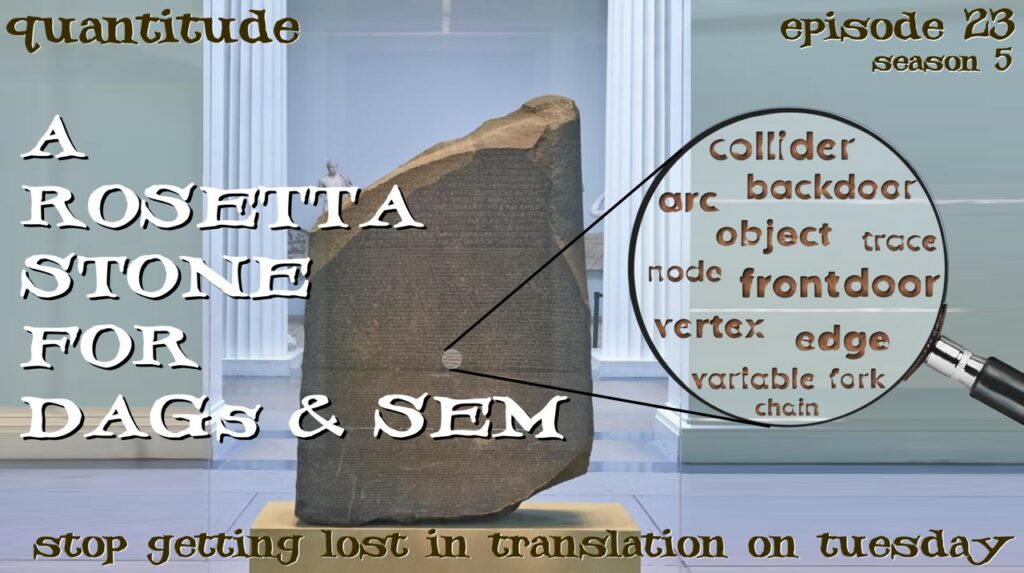In this week’s episode Greg and Patrick talk about both structural equation modeling and directed acyclic graphs, or DAGs, where they are similar and where they are different, and try to provide a Rosetta Stone for translating back and forth between the two. Along the way they also discuss pop, garage sales, thinking about excessive thought, roly-polies, potato bugs, been to the cinema, sweet tea, smiley face sub-i, poop hat, the British Museum, fiberglass replicas, love languages, cave drawings, the space-time continuum, coffee shops, a DAGs Czar, We Are The World (with Cyndi Lauper), tennis shoes, and bubblers.
Related Episodes
- S3E24: The Wright Stuff: The Beauty of Path Tracing Rules
- S2E08: Mediation and the Art of Squid Spleening
- S1E06: Model Modification and Whac-a-Mole
Recommended Readings
Digitale, J. C., Martin, J. N., & Glymour, M. M. (2022). Tutorial on directed acyclic graphs. Journal of Clinical Epidemiology, 142, 264-267.
Knight, C. R., & Winship, C. (2013). The causal implications of mechanistic thinking: Identification using directed acyclic graphs (DAGs). In Handbook of causal analysis for social research (pp. 275-299). Dordrecht: Springer Netherlands.
Lipsky, A. M., & Greenland, S. (2022). Causal directed acyclic graphs. JAMA, 327(11), 1083-1084.
Pearl, J. (1995). Causal diagrams for empirical research. Biometrika, 82(4), 669-688.
Textor, J., Van der Zander, B., Gilthorpe, M. S., Liśkiewicz, M., & Ellison, G. T. (2016). Robust causal inference using directed acyclic graphs: the R package ‘dagitty’. International journal of epidemiology, 45(6), 1887-1894.

